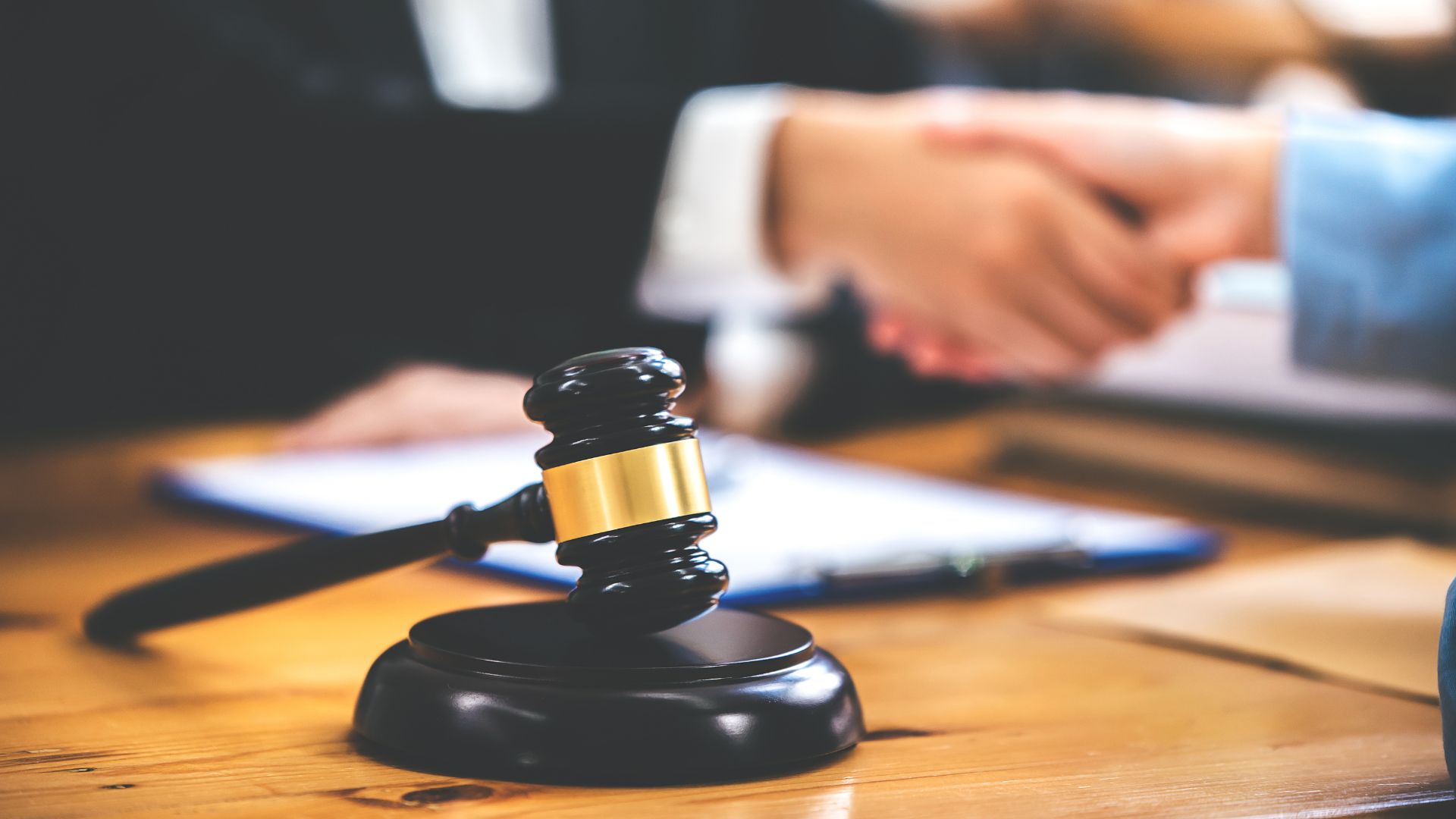Are you or someone you know a victim of domestic violence, abuse, or assault? Applying for protection under the Violence Against Women Act (VAWA) can be a complex and intimidating process. But fear not! In this blog post, we will guide you through the steps to prepare a strong affirmative VAWA application. Learn how to navigate the legal system and empower yourself towards safety and freedom. Let’s get started on your journey to justice!
Do you want to make your adjustment of status? Visit our website and contact us! Enter here
Gathering Evidence for Your Application
When applying for VAWA (Violence Against Women Act) protection, it is essential to gather as much evidence as possible to support your case. This evidence will help to strengthen your application and increase the chances of a successful outcome.
The first step in gathering evidence is to understand what kind of proof is required for your specific situation. VAWA applications require different types of evidence depending on the circumstances, but generally, they fall into three categories: personal statements from you and any witnesses, documentation that supports your claims, and any physical evidence that may exist.
Personal statements are crucial in conveying your experience and providing context for the abuse you have endured. You should write a detailed statement outlining the history of violence or abuse you have suffered at the hands of your abuser. It is important to be honest and provide specific details such as dates, locations, and descriptions of incidents.
Documentation can include police reports, medical records, or any other official documents that prove the abuse occurred. These documents carry significant weight in VAWA cases as they provide objective evidence of the abuse and its impact on you physically or emotionally.
Physical evidence may include photographs or videos documenting injuries or property damage caused by the abuser. This type of evidence can be powerful in illustrating the severity of the abuse you have experienced.
We recommend you to see this article: What is VAWA? Full free guide
Tips for Writing a Strong Personal Statement
Here are some tips to help you write a strong personal statement:
1. Be honest and specific: Your personal statement should be genuine and truthful. Avoid exaggerations or fabrications as these can hurt your credibility. Be specific about the incidents of abuse or violence that you have experienced, including dates, locations, and details. This will show the officer that you have a clear understanding of what has happened to you.
2. Use clear and concise language: The USCIS officers reviewing your application may not be familiar with your native language or cultural background. Therefore, it is important to use simple and straightforward language in your personal statement. Avoid using jargon or complex sentences that could be difficult for others to understand.
3. Tell your story: Your personal statement is an opportunity for you to tell your story in your own words. Use this space to explain how the abuse has affected your life physically, emotionally, and financially. Share any relevant information about yourself such as your educational background, work history, and family situation.
4. Connect with VAWA requirements: As part of your VAWA application, you must demonstrate that you meet certain eligibility requirements such as being married to a U.S citizen or permanent resident who has abused you. In your personal statement, make sure to connect how these requirements apply to your situation.
5. Highlight any evidence: If there is any evidence that supports your claims of abuse such as police reports, medical records, or witness statements, mention them in your personal statement. This will strengthen the credibility of your claims.
Need help with your case? Contact our legal experts today and get the best services.
Completing the Forms and Documents Required for an Affirmative VAWA Application
Once you have gathered all the necessary evidence and information, the next step in preparing an affirmative VAWA application is to complete the required forms and documents. This section will provide a detailed guide on what forms are needed and how to properly fill them out.
1. Form I-360: The first form that needs to be completed is Form I-360, also known as the Petition for Amerasian, Widow(er), or Special Immigrant. This form is used to establish your eligibility for VAWA relief as a qualifying spouse, child, or parent of a U.S citizen or lawful permanent resident who has subjected you to violence or extreme cruelty.
2. Personal Statement: Along with Form I-360, you will need to submit a personal statement detailing your relationship with the abuser and any incidents of abuse you have suffered. This statement should be written in your own words, describing the abuse in detail and how it has affected you physically, emotionally, and financially.
3. G-325A Biographic Information: This form requires basic biographical information about yourself such as name, date of birth, address history, employment history etc. You will need to fill out one copy for yourself (the applicant) and another copy for each derivative family member included in your application.
4. Supporting Documents: In addition to these forms, you will also need to submit supporting documents such as police reports, medical records, affidavits from witnesses etc., which serve as evidence of the abuse you have suffered.
5. Fees: There is no fee required for filing an affirmative VAWA application; however certain other fees may apply depending on your specific case. Check the USCIS website for a complete list of fees.
6. Proof of Relationship: If you are filing as a spouse or child, you will need to submit documents that prove your relationship with the abuser such as marriage certificates, birth certificates etc.
You may also be interested in this article: Immigration: myths and facts
Common Mistakes to Avoid When Preparing an Affirmative VAWA Application
In this section, we will discuss some of these mistakes and provide tips on how to avoid them.
1. Not submitting enough evidence: One of the most crucial elements of a successful VAWA application is providing sufficient evidence to support your claims. Many applicants make the mistake of not submitting enough evidence or only providing vague or general details. This can lead to a denial of their application as USCIS needs strong evidence to prove that you have been subjected to abuse or extreme cruelty by your U.S. citizen or permanent resident spouse or parent.
2. Failing to include a detailed personal statement: Your personal statement is an opportunity for you to tell your story and explain how you have been the victim of abuse or extreme cruelty by your abuser. However, many applicants make the mistake of either not including a personal statement at all or providing a generic and brief statement that does not adequately describe their experiences.
3. Not seeking help from professionals: Preparing a VAWA application can be complex and overwhelming for many individuals who are unfamiliar with immigration laws and procedures. Some applicants make the mistake of trying to complete the entire process on their own without seeking help from professionals such as immigration attorneys or accredited representatives.
4. Missing important deadlines: Another common mistake made by VAWA applicants is missing important deadlines. USCIS has strict timelines for submitting different parts of the application and failing to meet these deadlines can result in a denial. To avoid this mistake, make sure to carefully review all the instructions and deadlines provided by USCIS and submit your application on time.
5. Providing false information: It is important to understand that providing false information or fabricating evidence in your VAWA application can have serious consequences. Not only will it lead to a denial of your application, but it could also result in legal repercussions such as deportation or even criminal charges.
Avoiding these common mistakes can significantly increase your chances of success when preparing an affirmative VAWA application. Be sure to carefully read the instructions, seek help from professionals if needed, and provide strong evidence to support your claims. With proper preparation and attention to detail, you can increase the likelihood of a positive outcome for your VAWA case.
Avoid costly mistakes in your immigration process. Let me guide you! Visit my website.
If you found our article useful, please share it with someone who might need it. And don’t forget to follow us on Facebook and Instagram and check out all our services at rodriguezmartinimmigration.com.




